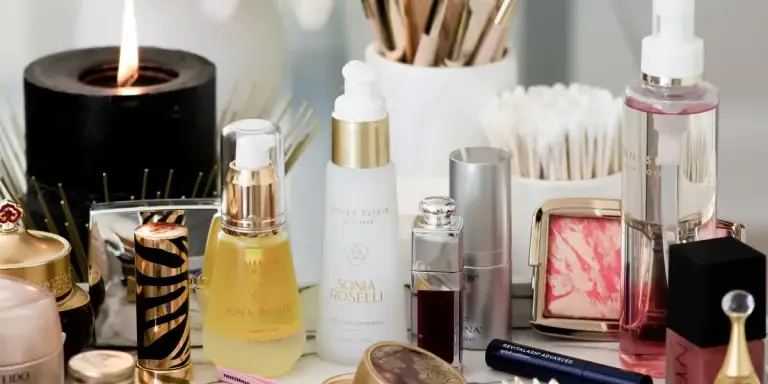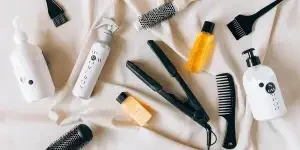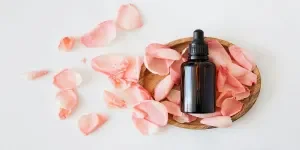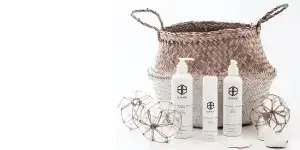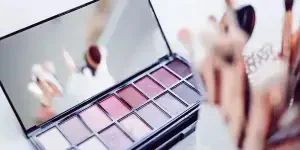Beauty serums have become a cornerstone in contemporary skincare regimens, offering potent solutions for a variety of skin concerns. These lightweight, fast-absorbing liquids are packed with active ingredients that target specific issues such as aging, hydration, brightening, and acne. As we step into 2025, the demand for beauty serums continues to surge, driven by an increasing awareness of skincare routines and the efficacy of high-performance ingredients.
Table of Contents:
– Understanding the Surge in Popularity of Beauty Serums and Their Market Potential
– Exploring Popular Types of Beauty Serums and Their Unique Benefits
– Addressing Common Consumer Pain Points with Beauty Serums
– Innovations and New Products in the Beauty Serum Market
– Key Considerations When Sourcing Beauty Serums for Retail
– Wrapping Up: The Future of Beauty Serums in Skincare
Understanding the Surge in Popularity of Beauty Serums and Their Market Potential

What Makes Beauty Serums a Must-Have in Skincare?
Beauty serums have carved out a unique niche in the skincare market due to their ability to deliver concentrated doses of active ingredients directly to the skin. Unlike traditional creams and lotions, serums are formulated with smaller molecules that penetrate deeper into the skin, ensuring that the active ingredients are more effective. This makes them indispensable for addressing specific skin concerns such as fine lines, wrinkles, hyperpigmentation, and dehydration. According to recent data, the global cosmetic serum market is projected to grow from USD 4.57 billion in 2024 to USD 6.16 billion by 2030, reflecting a compound annual growth rate (CAGR) of 5.09%.
Trending Hashtags and Social Media Buzz Around Beauty Serums
Social media platforms have played a pivotal role in the rising popularity of beauty serums. Hashtags like #SerumSaturdays, #GlowUp, and #SkincareRoutine have garnered millions of posts, with influencers and skincare enthusiasts sharing their favorite serums and the results they achieve. This digital buzz not only educates consumers about the benefits of serums but also drives demand by showcasing real-life transformations. The influence of social media, coupled with celebrity endorsements, has significantly boosted the visibility and credibility of beauty serums, making them a staple in skincare routines worldwide.
Aligning Beauty Serums with Broader Skincare Trends
The beauty serum market aligns seamlessly with several broader skincare trends that are gaining traction in 2025. One such trend is the growing demand for natural and organic products. Consumers are increasingly seeking serums formulated with clean, sustainable ingredients that are free from harmful chemicals. This shift towards clean beauty is evident in the rising popularity of serums containing botanical extracts, vitamins, and antioxidants. Additionally, the trend towards personalized skincare solutions is driving innovation in the serum market. Brands are leveraging advanced technologies like artificial intelligence to create customized serums tailored to individual skin types and concerns. This personalized approach not only enhances the efficacy of the products but also fosters a deeper connection between brands and consumers.
In conclusion, beauty serums have established themselves as a vital component of modern skincare routines, offering targeted solutions for a range of skin issues. The market potential for these products is immense, driven by increasing consumer awareness, social media influence, and alignment with broader skincare trends. As we move further into 2025, the demand for high-quality, effective beauty serums is expected to continue its upward trajectory, presenting lucrative opportunities for retailers and wholesalers in the beauty and personal care industry.
Exploring Popular Types of Beauty Serums and Their Unique Benefits

Vitamin C Serums: Brightening and Anti-Aging Powerhouses
Vitamin C serums have become a staple in the beauty industry, renowned for their ability to brighten the skin and combat signs of aging. These serums are formulated with ascorbic acid, a potent antioxidant that neutralizes free radicals, thereby preventing oxidative stress and damage to the skin. According to a professional report, Vitamin C serums are particularly effective in reducing hyperpigmentation and dark spots, making them a popular choice for consumers seeking a more even skin tone.
In addition to their brightening properties, Vitamin C serums also stimulate collagen production, which helps to improve skin elasticity and reduce the appearance of fine lines and wrinkles. Brands like L’Oréal and Galderma have introduced Vitamin C serums that combine this powerful ingredient with other beneficial compounds such as hyaluronic acid and peptides, enhancing their overall efficacy. For business buyers, sourcing Vitamin C serums that offer a stable formulation and high concentration of active ingredients is crucial to meet consumer expectations.
Hyaluronic Acid Serums: Hydration and Plumping Effects
Hyaluronic acid serums are celebrated for their exceptional hydrating properties. Hyaluronic acid is a naturally occurring substance in the skin that can hold up to 1,000 times its weight in water, making it an ideal ingredient for maintaining skin moisture levels. These serums are particularly beneficial for consumers with dry or dehydrated skin, as they provide an instant plumping effect and improve skin texture.
Brands like The Ordinary and Neutrogena have developed hyaluronic acid serums that cater to various skin types, offering formulations that include multi-molecular weights of hyaluronic acid for deeper penetration and longer-lasting hydration. For business buyers, it is essential to source hyaluronic acid serums that are free from harmful additives and have a lightweight, non-greasy texture to ensure consumer satisfaction.
Retinol Serums: Tackling Fine Lines and Wrinkles
Retinol serums are highly regarded for their anti-aging benefits, particularly in reducing fine lines and wrinkles. Retinol, a derivative of Vitamin A, accelerates cell turnover and promotes collagen production, resulting in smoother and firmer skin. According to industry experts, retinol serums are effective in treating various skin concerns, including acne, hyperpigmentation, and uneven skin texture.
Brands like Olay and RoC have formulated retinol serums that incorporate advanced delivery systems to minimize irritation and enhance the stability of retinol. For business buyers, it is important to consider the concentration of retinol and the inclusion of soothing ingredients like niacinamide and hyaluronic acid to ensure the product is suitable for a wide range of consumers.
Addressing Common Consumer Pain Points with Beauty Serums

Sensitivity and Irritation: Finding Gentle Formulations
One of the primary concerns consumers have with beauty serums is the potential for sensitivity and irritation. This is particularly relevant for serums containing active ingredients like retinol and Vitamin C, which can cause redness and discomfort if not formulated correctly. To address this, brands are increasingly developing gentle formulations that include soothing ingredients such as aloe vera, chamomile, and green tea extract.
For instance, brands like CeraVe and La Roche-Posay offer serums that are specifically designed for sensitive skin, incorporating ceramides and niacinamide to strengthen the skin barrier and reduce irritation. Business buyers should prioritize sourcing serums that have been dermatologically tested and are free from common irritants like alcohol and synthetic fragrances.
Price vs. Quality: Balancing Cost and Effectiveness
Another common pain point for consumers is finding a balance between price and quality. While high-end serums often come with a hefty price tag, they are not always guaranteed to be more effective than their more affordable counterparts. Brands like The Ordinary and Inkey List have disrupted the market by offering high-quality serums at accessible price points, proving that effective skincare does not have to be expensive.
For business buyers, it is important to evaluate the cost-effectiveness of serums by considering the concentration of active ingredients, the stability of the formulation, and the overall consumer reviews. Offering a range of serums at different price points can cater to a broader audience and meet diverse consumer needs.
Ingredient Transparency: Understanding What’s Inside
Ingredient transparency is becoming increasingly important to consumers who want to know exactly what they are putting on their skin. Brands that provide clear and detailed information about their ingredients and their benefits are more likely to gain consumer trust and loyalty. According to a professional report, consumers are particularly interested in the source and efficacy of active ingredients, as well as the presence of any potential allergens or harmful additives.
Brands like Paula’s Choice and Drunk Elephant are known for their commitment to ingredient transparency, providing comprehensive ingredient lists and explanations on their packaging and websites. Business buyers should seek out brands that prioritize transparency and offer detailed product information to help consumers make informed decisions.
Innovations and New Products in the Beauty Serum Market

Cutting-Edge Ingredients and Their Benefits
The beauty serum market is constantly evolving with the introduction of cutting-edge ingredients that offer enhanced benefits. Ingredients like bakuchiol, a natural alternative to retinol, and niacinamide, known for its anti-inflammatory properties, are gaining popularity for their efficacy and gentleness on the skin. According to industry experts, these ingredients provide similar benefits to traditional actives but with fewer side effects, making them suitable for a wider range of consumers.
Brands like Herbivore and Biossance have incorporated these innovative ingredients into their serums, offering products that cater to specific skin concerns while promoting overall skin health. For business buyers, staying updated on the latest ingredient trends and sourcing serums that feature these cutting-edge actives can provide a competitive edge in the market.
Sustainable and Eco-Friendly Serum Options
Sustainability is a growing concern among consumers, and the beauty industry is responding by developing eco-friendly serum options. Brands are focusing on sustainable sourcing of ingredients, recyclable packaging, and reducing their overall environmental impact. According to a professional report, consumers are more likely to support brands that demonstrate a commitment to sustainability and ethical practices.
Brands like Tata Harper and REN Clean Skincare are leading the way in sustainable beauty, offering serums that are formulated with organic ingredients and packaged in recyclable materials. Business buyers should consider partnering with brands that prioritize sustainability and offer eco-friendly products to meet the increasing demand for green beauty solutions.
Multi-Functional Serums: Combining Benefits for Efficiency
Multi-functional serums that combine multiple benefits into one product are becoming increasingly popular among consumers seeking efficient skincare solutions. These serums often include a blend of active ingredients that address various skin concerns simultaneously, such as hydration, anti-aging, and brightening. According to industry experts, multi-functional serums offer convenience and value, making them an attractive option for busy consumers.
Brands like Sunday Riley and Dr. Dennis Gross have developed multi-functional serums that deliver comprehensive skincare benefits in a single application. For business buyers, sourcing multi-functional serums that offer a high concentration of active ingredients and proven efficacy can help attract consumers looking for streamlined skincare routines.
Key Considerations When Sourcing Beauty Serums for Retail

Evaluating Supplier Credibility and Product Authenticity
When sourcing beauty serums for retail, it is crucial to evaluate the credibility of suppliers and the authenticity of their products. Working with reputable suppliers who adhere to high manufacturing standards and provide transparent documentation can help ensure the quality and safety of the products. According to industry experts, verifying the authenticity of beauty serums through third-party testing and certification can also help prevent counterfeit products from entering the market.
Business buyers should conduct thorough due diligence on potential suppliers, including reviewing their certifications, production processes, and quality control measures. Partnering with suppliers who have a proven track record of delivering high-quality products can help build consumer trust and loyalty.
Understanding Consumer Preferences and Trends
Staying informed about consumer preferences and trends is essential for sourcing beauty serums that meet market demand. According to a professional report, consumers are increasingly seeking serums that offer specific benefits, such as anti-aging, hydration, and brightening, as well as those formulated with natural and sustainable ingredients. Understanding these preferences can help business buyers select products that resonate with their target audience.
Business buyers should regularly monitor market trends and consumer feedback to identify emerging preferences and adjust their product offerings accordingly. Collaborating with brands that are responsive to consumer needs and continuously innovate their product lines can help maintain a competitive edge in the market.
Ensuring Compliance with Regulatory Standards
Compliance with regulatory standards is a critical consideration when sourcing beauty serums for retail. Different regions have specific regulations regarding the formulation, labeling, and marketing of cosmetic products, and non-compliance can result in legal issues and product recalls. According to industry experts, ensuring that beauty serums meet all relevant regulatory requirements is essential for maintaining product safety and consumer trust.
Business buyers should work with suppliers who are knowledgeable about regulatory standards in their target markets and can provide the necessary documentation and certifications. Conducting regular audits and quality checks can also help ensure ongoing compliance and mitigate potential risks.
Wrapping Up: The Future of Beauty Serums in Skincare

In conclusion, the beauty serum market is poised for continued growth and innovation, driven by consumer demand for effective, multi-functional, and sustainable skincare solutions. Business buyers must stay informed about the latest trends and advancements in the industry to source high-quality products that meet consumer needs. By prioritizing ingredient transparency, sustainability, and regulatory compliance, business buyers can build a strong portfolio of beauty serums that resonate with their target audience and drive success in the competitive skincare market.
